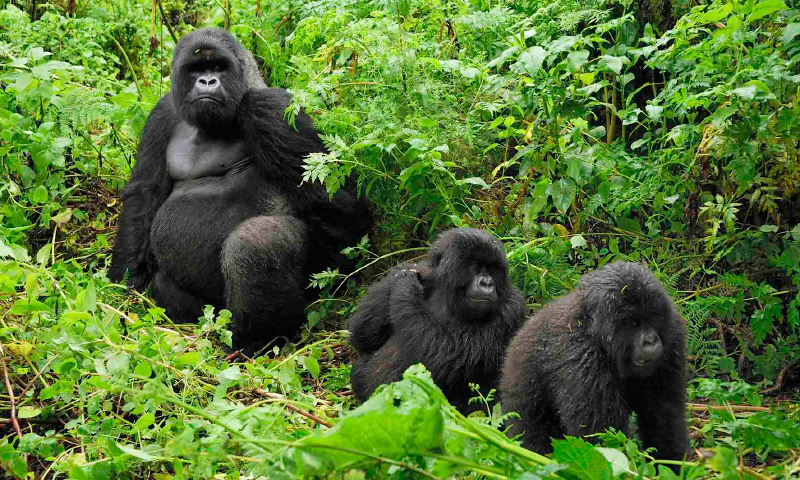Souvenirs you should carry home after your Gorilla trek Safari in Uganda These are things…
Eco tourism: Saving mountain gorillas in Africa
Ecotourism is important in the conservation efforts to save mountain gorillas in Africa. The economic benefits of responsible and sustainable tourism may help conserve gorilla habitats, local communities, and the general well-being of these endangered animals. Here’s how ecotourism can help save mountain gorillas.
- Financial Support for Conservation: Revenue generated from gorilla trekking permits, accommodation, and related tourism activities provides a direct source of funding for conservation efforts. This financial support helps fund anti-poaching patrols, habitat restoration, research, and community development projects in and around gorilla habitats.
- Local Community Engagement: Responsible eco-tourism often involves local communities in the conservation process. When communities benefit from tourism, they become more invested in protecting the gorillas and their environment. This can include providing jobs, education, and healthcare opportunities, which reduces the reliance on activities that might harm the gorillas, such as poaching or habitat destruction.
- Habitat Protection: The presence of tourists in gorilla habitats can act as a deterrent to illegal activities like logging and poaching. When tourists visit these areas, it increases surveillance and monitoring efforts, making it harder for illegal activities to go unnoticed.
- Research and Monitoring: Tourism provides an opportunity for researchers and conservationists to closely monitor the gorilla populations. Data collected during tourist visits can help track the health and behavior of gorilla groups, detect disease outbreaks, and inform conservation strategies.
- Awareness and Education: Tourists who visit gorilla habitats often come away with a deeper understanding of the importance of conservation. This increased awareness can lead to greater global support for gorilla protection efforts and wildlife conservation as a whole.
- Regulation and Management: Responsible eco-tourism requires careful management and regulation of visitor numbers and activities. This ensures that the impact on gorillas and their habitats is minimized while still allowing people to experience the beauty of these animals in the wild.
- Promotion of Conservation Ethics: By interacting with guides and conservationists during their visits, tourists can learn about the challenges faced by gorillas and the broader ecosystem. This can instill a sense of responsibility and encourage ethical behavior even after tourists return home.
While eco-tourism may have a good impact on conservation, it must also be controlled carefully to avoid negative consequences. Overtourism, habitat degradation, disease transfer, and disruption of natural behaviours are all possible threats that must be addressed by good planning, education, and rules.
Overall, eco-tourism is a great tool for raising awareness about the condition of mountain gorillas as well as actively helping to their preservation and habitat conservation.


